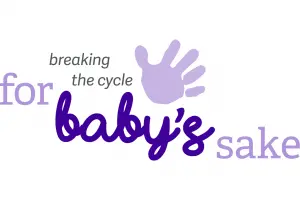The Institute is delighted to see the launch of the independent evaluation report for the For Baby’s Sake initiative, launched by the Stefanou Foundation in 2015. It is a ground-breaking programme for expectant parents who want to break the cycle of domestic abuse and give their baby the best start in life.
Dr Cheryll Adams CBE, Executive Director, Institute of Health Visiting, commented:
“For Baby’s Sake has the power to help to prevent a second pandemic of domestic abuse and poor infant and parental mental health. It has never been more important.”
The evaluation was led by King’s College London and included academics from University of Warwick, University of Cambridge, University of Central Lancashire and McMaster University, Canada. The academic team evaluated the feasibility, acceptability and impact of For Baby’s Sake in two prototype sites in Hertfordshire and the London boroughs of Westminster, Kensington & Chelsea, and Hammersmith & Fulham from 2015 – 2019.
The report describes For Baby’s Sake as the first of its kind to ‘fill an important gap in provision’ through ‘its unique approach’ and highlights the positive feedback from mothers and fathers engaging in the programme, as well as the For Baby’s Sake practitioners and professionals from partner agencies.
Learning from health visiting supported the design of For Baby’s Sake, and partnership working between For Baby’s Sake practitioners and heath visitors is an important element of how the programme is delivered. The For Baby’s Sake team shared their learning from this initiative as part of the expert group who helped to create the Institute of Health Visiting’s new resources on responding to domestic violence and abuse.
Innovative features of For Baby’s Sake include:
- Starting in pregnancy, to harness the motivations of mothers and fathers to be good parents and give their baby a different start in life from the one they had
- Both parents joining the programme and each being allocated their own practitioner to work with them separately and therapeutically over an extended period, until their baby is aged two
- Practitioners working together to develop a holistic picture of the issues for all members of the family and understand better any risks and safeguarding issues
- Having no goal in principle about parents staying together or separating. The evaluation noted how this empowered parents, including those who expected to stay in the relationship but found personal growth instead
- Combining evidence-based approaches to address domestic abuse and the impact of parents’ own childhood trauma, alongside parenting interventions for mothers and fathers, focused on sensitive, attuned interaction with their babies.
A summary of the evaluation report is available by clicking here and the full report can be accessed at www.forbabyssake.org.uk



